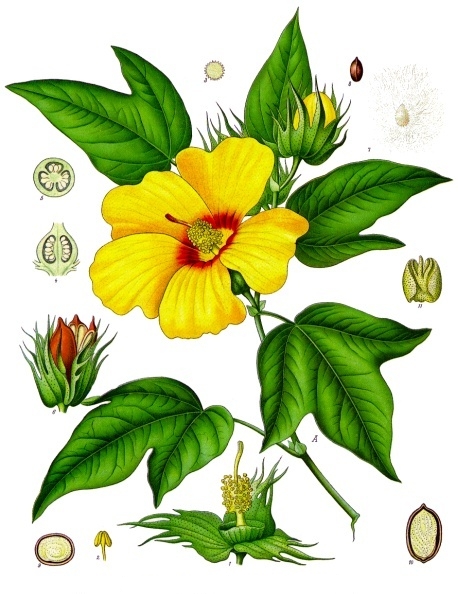Gossypium barbadense
From Wikipedia ...
Gossypium barbadense, also known as extra-long staple (ELS) cotton, is a species of cotton plant that has been cultivated to have ELS fibres - fibres longer than 34 millimetres (1 3⁄8 in) - which are associated with high quality cotton cloth. The species is a tropical, frost-sensitive perennial that produces yellow flowers and has black seeds. It grows as a small, bushy tree and yields cotton with unusually long, silky fibers. To grow, it requires full sun and high humidity and rainfall. This plant contains the chemical gossypol, which reduces its susceptibility to insect and fungal damage. Varieties of ELS cotton include: West Indian Sea Island Cotton Association (WISICA) Sea Island, American Pima, Egyptian ELS Gizas, Indian Suvin and Chinese Xinjiang.
Data
We used Gb.final.all.gene.model.gtf and AD2-NBI_v1.0_assembly.fas from COTTONGEN as the reference genome. The Isoseq data downloaded from NCBI were under project SRP095915. To process polypolid plants we insert two extra steps, phasing and adjusting, into TAPIS pipeline.
Summary
From Iso-Seq data, we found 63,884 transcripts, 17,858 novel genes and 68,609 Alternative Splicing events.
Reference
- https://en.wikipedia.org/wiki/Gossypium_barbadense
- https://www.cottongen.org/data/download/genome

Alternative Splicing Gene Statistics
| Type | ExonS | AltD | AltA | IntronR | Other | AltP |
|---|---|---|---|---|---|---|
| Gene Number | 3,156 | 3,192 | 4,160 | 7,772 | 3,379 | 3,573 |